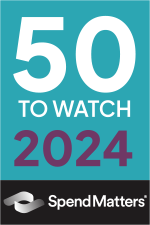Supplier Diversity Module
Discrimination and unfair treatment of a supplier’s employees based on factors such as race, gender, or ethnicity can lead to a myriad of challenges for buyers: legal issues, reputational damage, and loss of trust from stakeholders being a few.FRDM’s Supplier Diversity Module allows businesses to proactively assess of discrimination or bias, address them promptly, and implement remediation workflows. By monitoring diversity, organizations can ensure an inclusive environment that encourages collaboration and innovation.
Benefits of Monitoring Supplier Diversity In Your Supply Chain
The UFLPA establishes a rebuttable presumption that any goods mined, produced, or manufactured in the XUAR are made with forced labor and are thus prohibited from entering the United States under Section 307 of the Tariff Act of 1930. This presumption also applies to goods produced by certain entities identified by the U.S. government.


Enforcement and Compliance
The Department of Homeland Security (DHS) is intensifying efforts to enforce the UFLPA. Customs and Border Protection (CBP) plans to hire 300 full-time personnel dedicated to enforcing the act. Chairman Robert Silvers of the Forced Labor Enforcement Task Force (FLETF) has emphasized the importance of compliance, stating that it is a "top-tier compliance issue."
Implications for businesses
Businesses must proactively assess their supply chains to ensure compliance with the UFLPA. This involves mapping supply chains, engaging with suppliers, and implementing due diligence measures to identify and mitigate risks associated with forced labor. Given the complexity of global supply chains, companies may inadvertently source materials linked to forced labor, particularly in industries such as textiles, electronics, and agriculture.

FRDM's Role in Compliance
FRDM offers tools to help businesses comply with the UFLPA by analyzing spend data and providing insights into supply chain risks. Identify upstream commercial connections, predict potential exposure to forced labor, and take corrective actions.

Engage stakeholders and partners
Zero Tolerance Policies will not be enough for this requirement. CPB wants empirical evidence of engagement. Companies should be consistently communicating their efforts against the requirements to their board of directors, executive management, procurement teams, suppliers and trade associations. FRDM can track your communications and training with your stakeholders and partners and support you with dynamic reporting tools.

Assess risks and impact
CBP is pushing companies to get off their heels and onto their toes to play a more proactive role in risk management. FRDM was built for this specific need. FRDM assesses the risk of your entire supplier base to the nth tier without needing to engage your suppliers. Risk is measured by severity and proximity to your business, along with several filtering and sorting options allowing for the most intuitive workflows.

Develop a code of conduct
Responsible Codes Of Conduct (CoC)now include supply chain transparency and risk mitigation practices embedded into standard operations. If called upon by the CBP your company may be required to produce evidence of supply chain mapping and risk mitigation. Your CoC should include asking the same of your suppliers.











